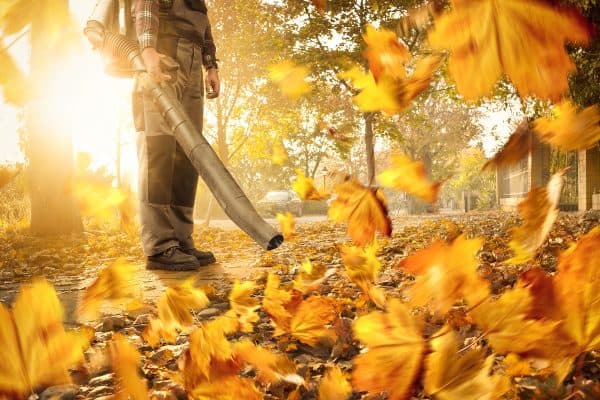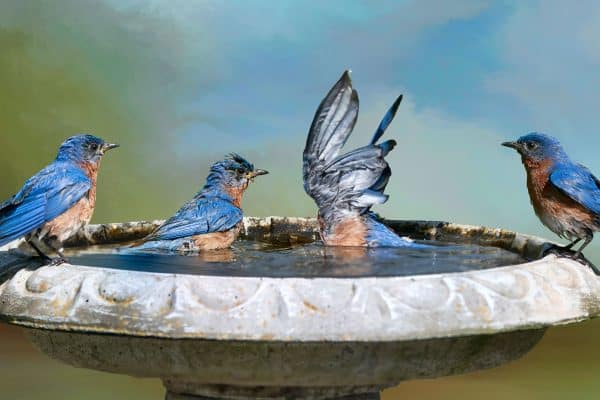Traditionally, "mulching" involved using natural materials such as cut grass, leaves, wood chips, compost, hay, or animal dung. Agricultural advances have created synthetic mulch alternatives, such as rubber and plastic. But can you put rubber mulch over wood mulch? We've researched the answer.
It is recommended to overlay rubber nuggets atop regular wood or any organic mulch to prolong their usefulness. Rubber mulches deteriorate when exposed to sunlight, so applying a natural protective layer is necessary.
The article aims to give an overview of the advantages of mulching and help you determine which type best suit your needs and requirements.
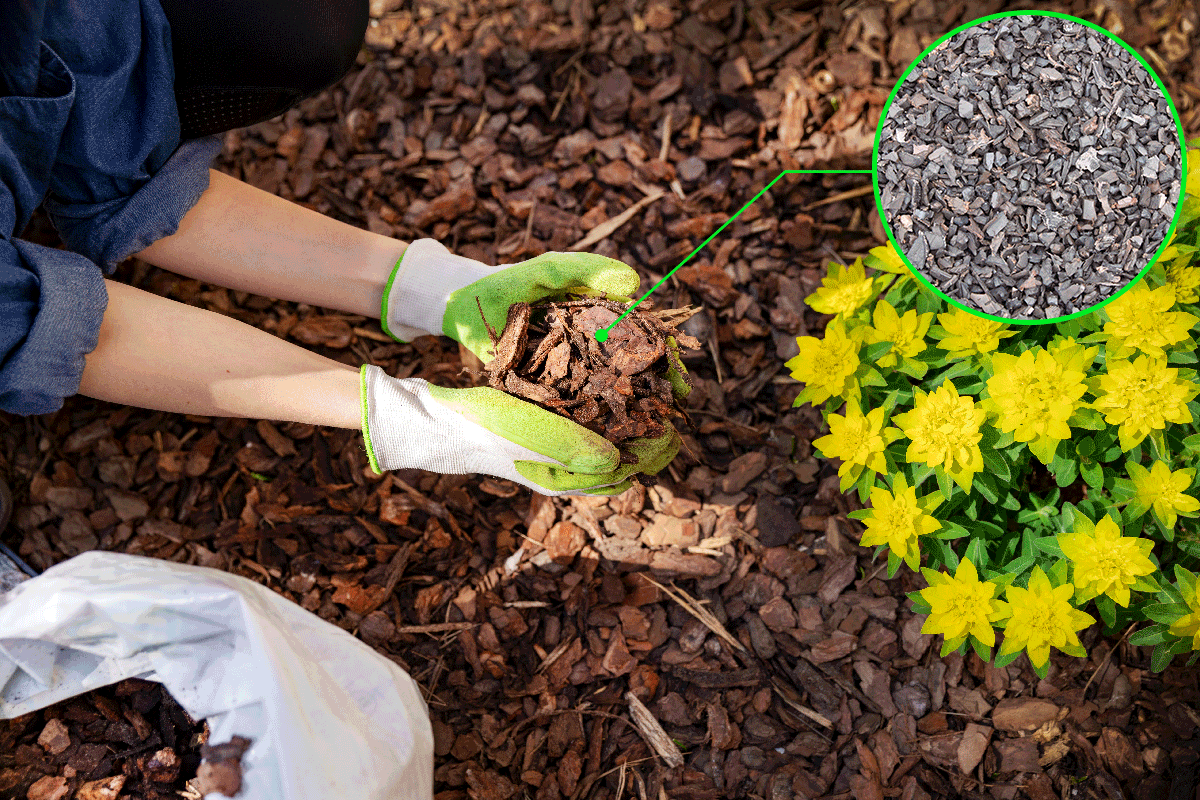
Mulch: An Enriching Layer
A mulch entails layers of leaves, tree bark, cut grass, or other natural components applied to the soil's surface around a plant. Mulching:
- retains moisture,
- regulates ground temperature,
- improves soil fertility and plant health,
- reduces weed growth,
- and enhances the appearance of gardens.
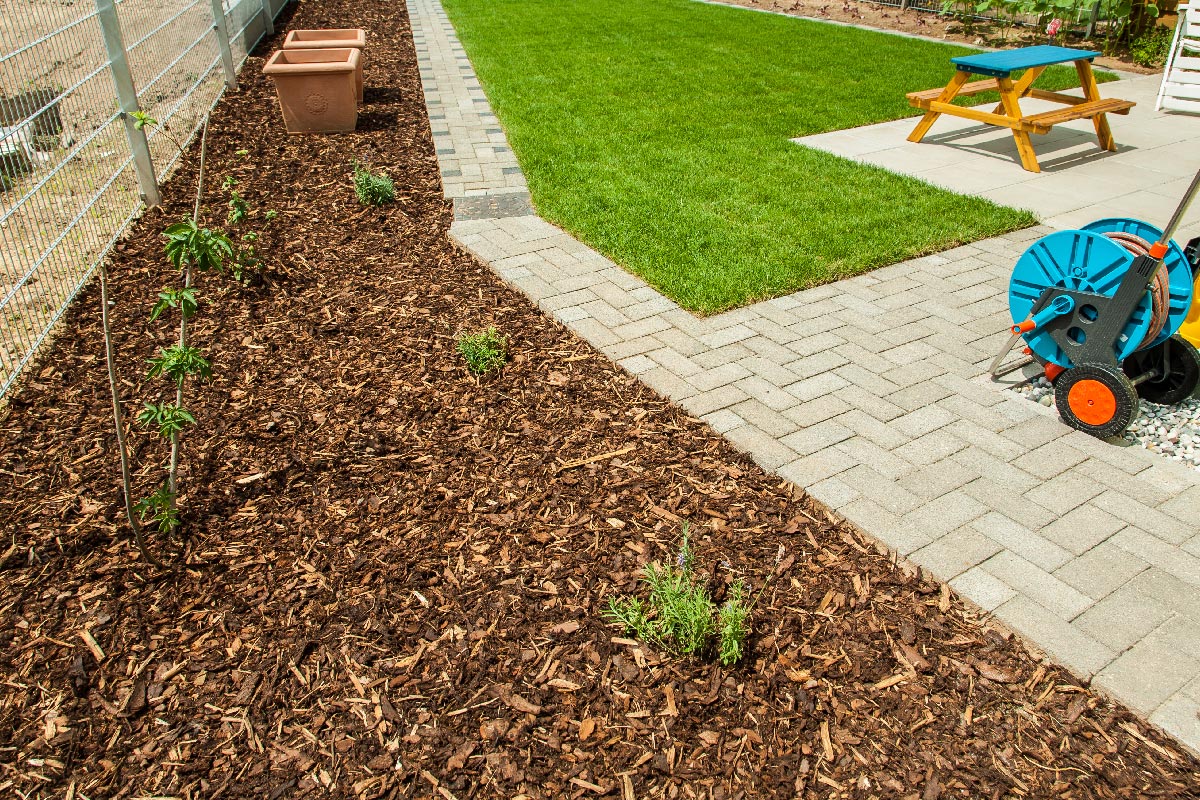
Not all plant enthusiasts and gardeners apply mulch and some deem the process unnecessary. However, it is a naturally occurring mechanism that promotes better plant growth and development.
To illustrate, consider a forest; leaves fall, accumulate, and decompose around the trees creating the above-mentioned conditions, allowing sustainability for new plants' survival. Mulching is a natural method of ensuring soil and plant health.
Mulching involves all the organisms present in a particular area, the soil, plants, microbes, insects, and the general environment to create an ecosystem that benefits the natural inhabitants. The following are several advantages of applying mulch.
Moisture Retention
Mulch provides a layer between the soil and the atmosphere that prevents evaporation.
The organic material helps retain moisture by reducing the impacts of weeds, harsh weather conditions, and high temperatures.
Some plants need adequate soil moisture in order for them to grow properly. Applying mulch helps keep the natural balance within the area where vegetation is planted.
Temperature Regulation
Mulch functions as a protective blanket that insulates the soil. Extreme temperature changes affect the developing plants' roots by adversely reducing their water and nutrient absorption.
Studies have shown that applying a mulch layer can keep the soil cool during the intense summer heat, and warm amidst frigid winter conditions. It generally protects plants from the freeze-thaw cycle.
Improve Soil Fertility
Organic and living mulches best improve the soil quality compared to artificial counterparts. The layer of natural material yields the ground's nutrient supply.
While this is true, mulches with higher nutrient contents are used mostly in landscaping than in agriculture because they can harm sensitive crops. For example, a bark or straw mulch reduces the nitrogen present in the soil without affecting plant growth.
Reduce Weed Growth
Weeds present can result in 25% water loss. Plants tend to compete with weeds to gain their required soil nutrients.
By applying organic mulch, you impede weed growth; thus, retaining moisture and ensuring that the vegetation acquires its basic nutrient contents. It generally increases productivity and crop yield.
Enhance Visual Appeal
Some living mulch, such as moss, is used in various landscaping projects or in small container gardens. Rock mulch is an ornamental stone that relatively enhances the visual appeal. While it improves visual aesthetics, it performs as a protective blanket for the soil.
Wood Mulch & Rubber Mulch: Natural Vs. Artificial
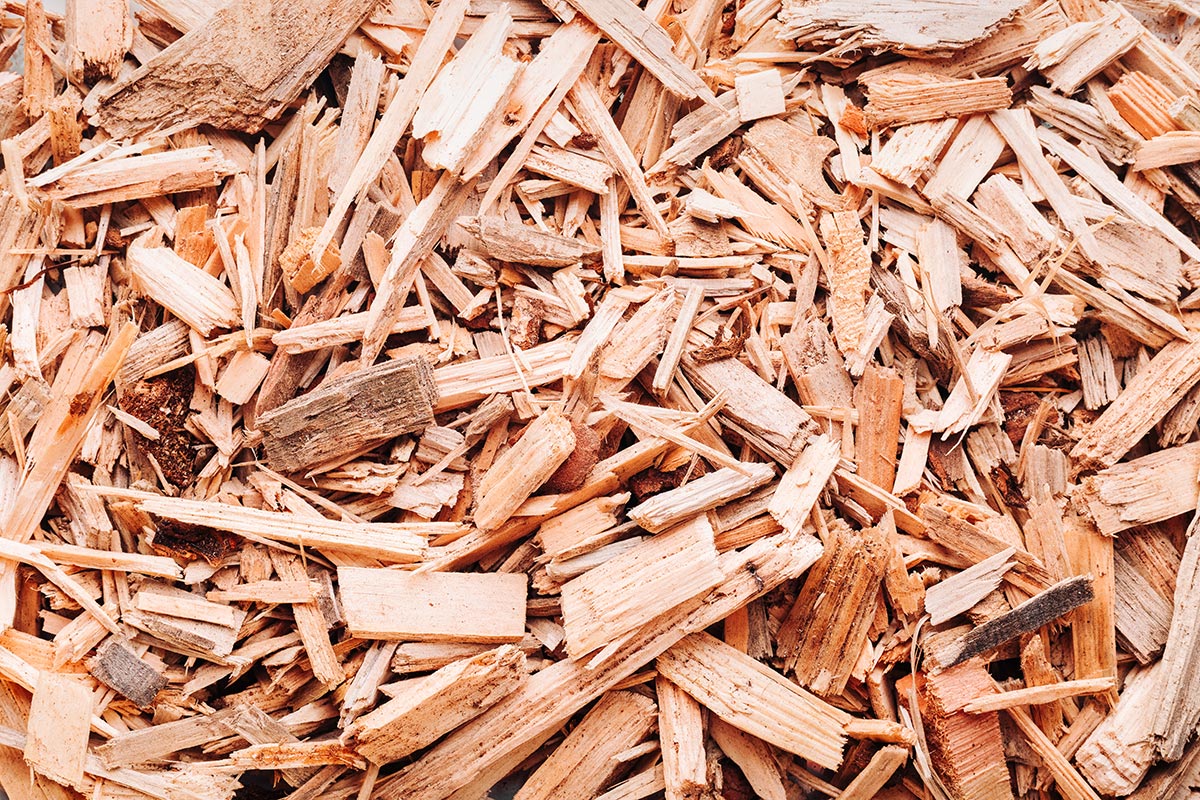
Wood mulch is environmentally friendly and a popular organic material used in lawns and gardens. Wood nuggets are typically lumber industry byproducts that undergo a process before being packaged.
On some occasions, wood nuggets are dyed black, brown, or red to complement various landscape features.
Wood mulch types include hardwood and softwood. Hardwood is best applied on flower beds when they are close to decomposition because they tend to break down easily and quickly. It rapidly improves soil composition.
Softwood actually decomposes slower which is why softwood chippings are ideal for trees and large shrubs.
Check out Natural Cedar Shaving Mulch on Amazon.
Rubber mulch is made of used tires that have been refined. Generally, it is used in children's outdoor play equipment as it produces a safe soft surface. But it is slowly gaining popularity as mulch.
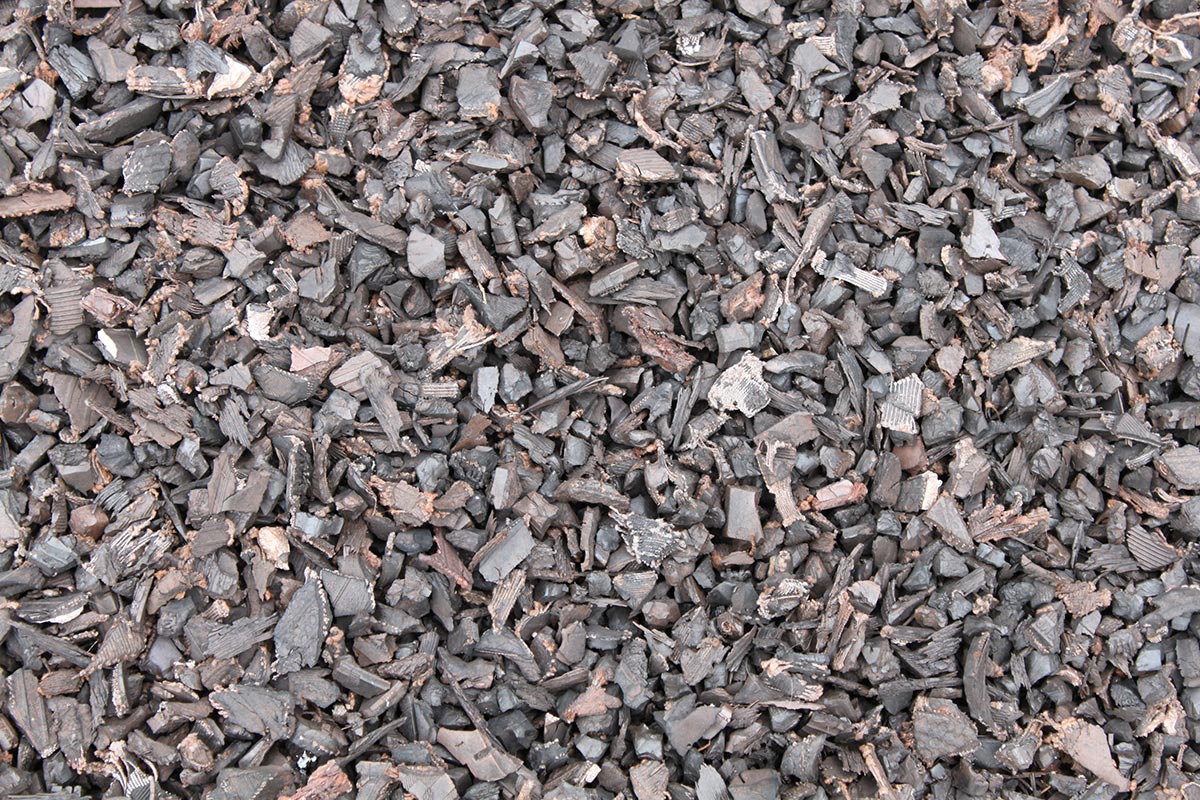
Rubber mulch has a longer lifespan because it does not decompose easily. It is preferred in ornamental gardens that experience stormy or frigid conditions.
However, it is less advisable to use rubber for edible gardens because the chemicals can be toxic to plants and vegetation, making them unsafe to eat.
Using both wood and rubber has its own merits. Once wood chippings start to decompose, rubber mulch acts as a secondary layer that protects it from harsh weather conditions.
Check out Rubber Mulch Landscaping Bark on Amazon.
What Are Different Types Of Organic Mulches?
Organic mulches are natural materials that decompose over time. They are a temporary cover or filler. As they decompose, they add nutrients to the soil. Specific mulches have significant effects.
Some varieties may have an adverse impact on plant growth because they contain high carbon as opposed to nitrogen. Mulches should hold more nitrogen for microbes to break down their nutrients.
Leaves
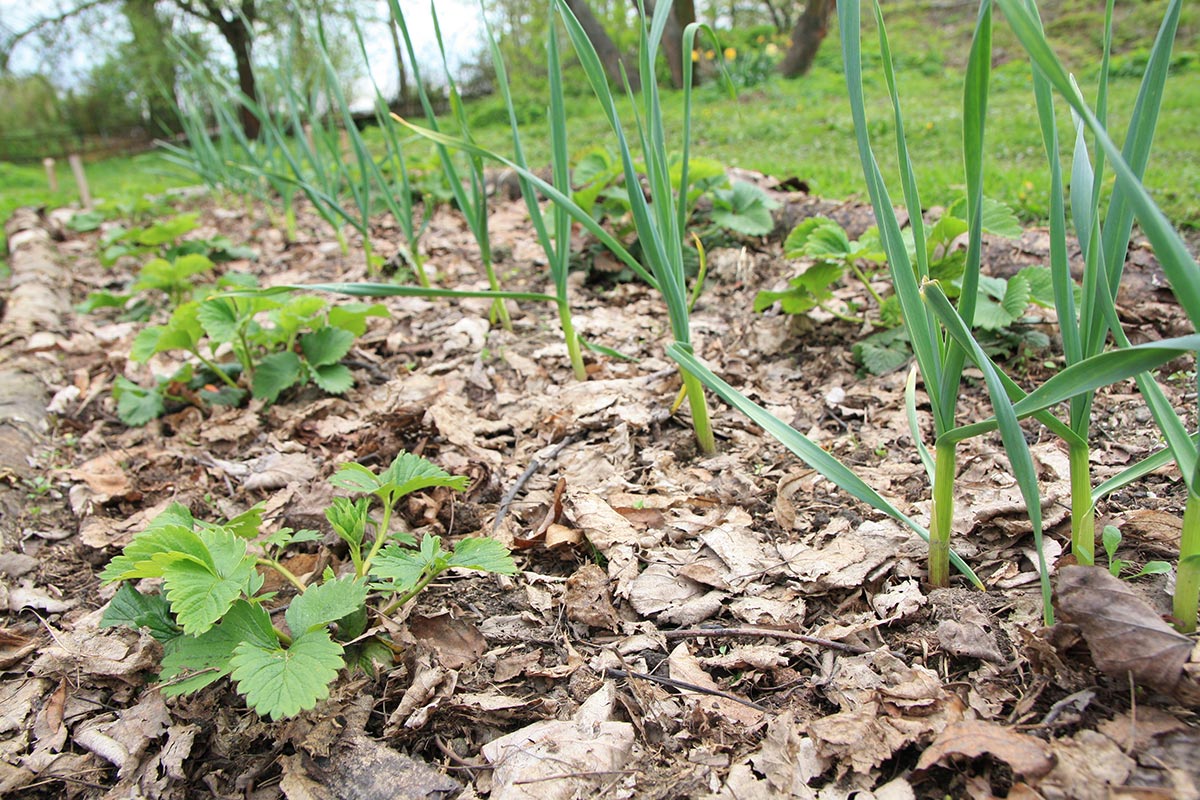
Leaves are the most basic organic mulch that you can get by simply collecting fallen or dried leaves around your property. Leaf mulches yield high nutrient content that helps in improving the soil condition.
Dried leaves are used during winter because they protect the plants from harsh frigid conditions and from the freeze-thaw cycle. They are typically cleared out at the beginning of spring.
Grass Clippings
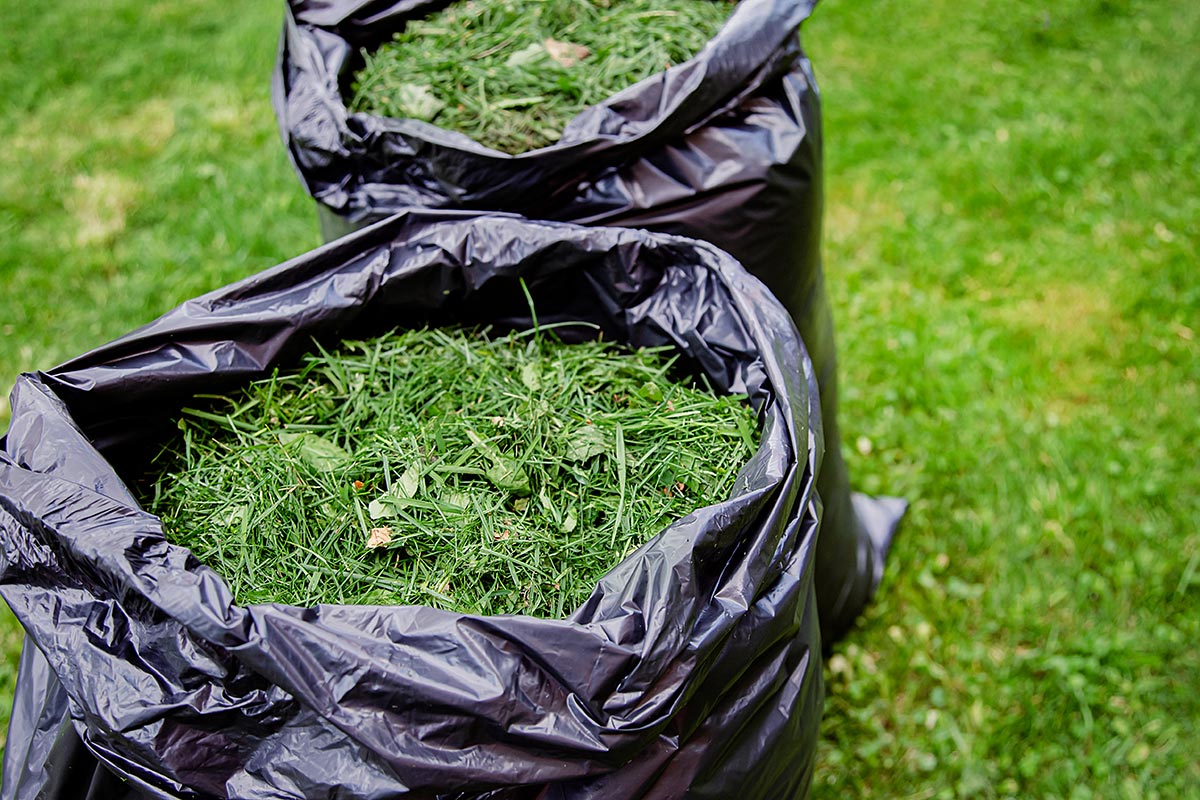
Grass clippings are basically grass shreds left behind from mowing the lawn. Using this specific kind of mulch has both benefits and detrimental effects depending on your purpose.
Grass clippings typically hold high water content which allows them to decompose rapidly, however, they produce a foul smell and become grimy over time.
Due to this reason, it is suggested to place them in areas farthest from your living space. While this is true, grass clippings do well in impeding or suppressing weed growth.
Apart from the aforementioned disadvantages, avoid using herbicide-laden grass clippings because they are not only detrimental to our health but also adversely affect crops and flowering plants.
Straw Mulch
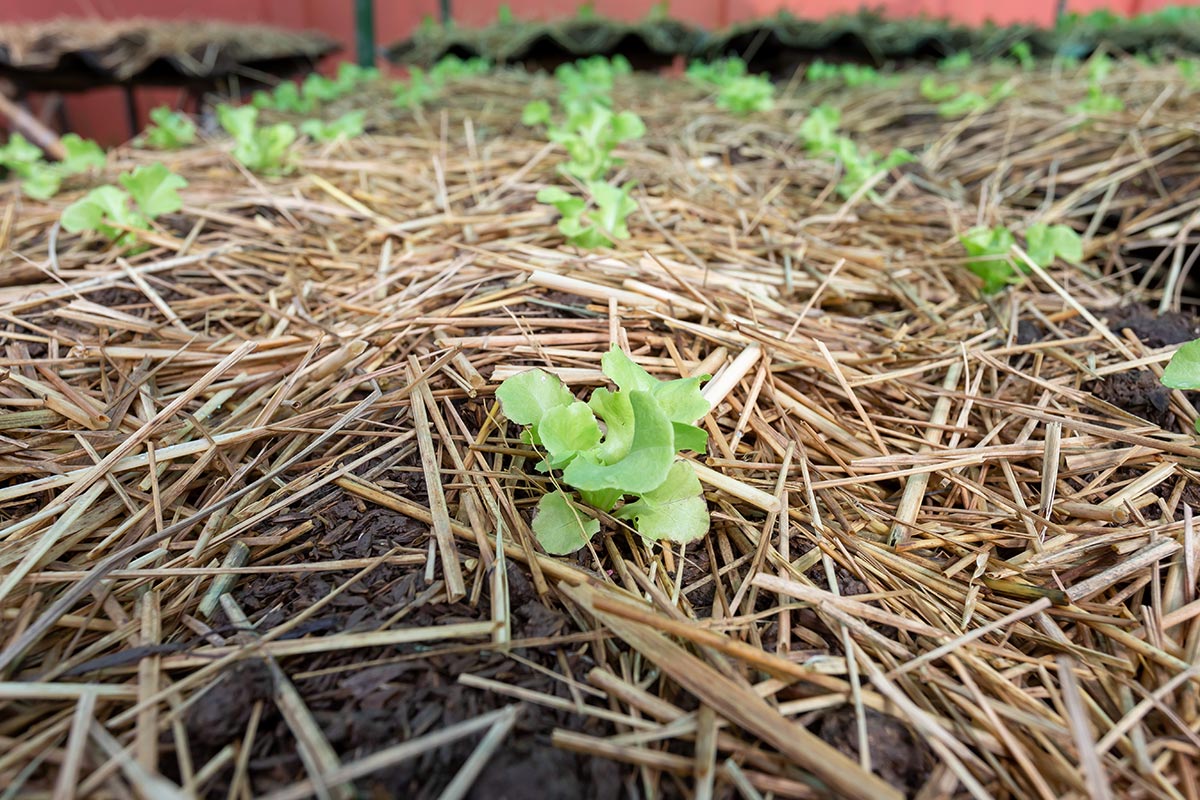
Straw mulch is best used in vegetable gardens and newly seeded lawns. It serves as a home for spiders and other beneficial insects which helps in regulating pests. Not only that, but it also prevents your vegetables from getting infected with soil-borne diseases.
One special characteristic of this mulch is that it decomposes quite slowly, making it last till the end of the growing season. It usually functions as a soil barrier for growing fruits or vegetables that may otherwise have a natural existence with the ground.
Fruits and vegetables such as strawberries and pumpkins have the tendency to wilt when they come into contact with the soil for too long, however, the straw mulch protects the crops from it.
Apart from this, the layer of mulch also acts as a protective barrier against birds or rodents who would most likely get attracted to the newly seeded lawns.
Straw is the best choice when the purpose of your mulching is to achieve good moisture retention. It boosts seed germination because embryos grow well if exposed to constant moisture.
Pine Straw
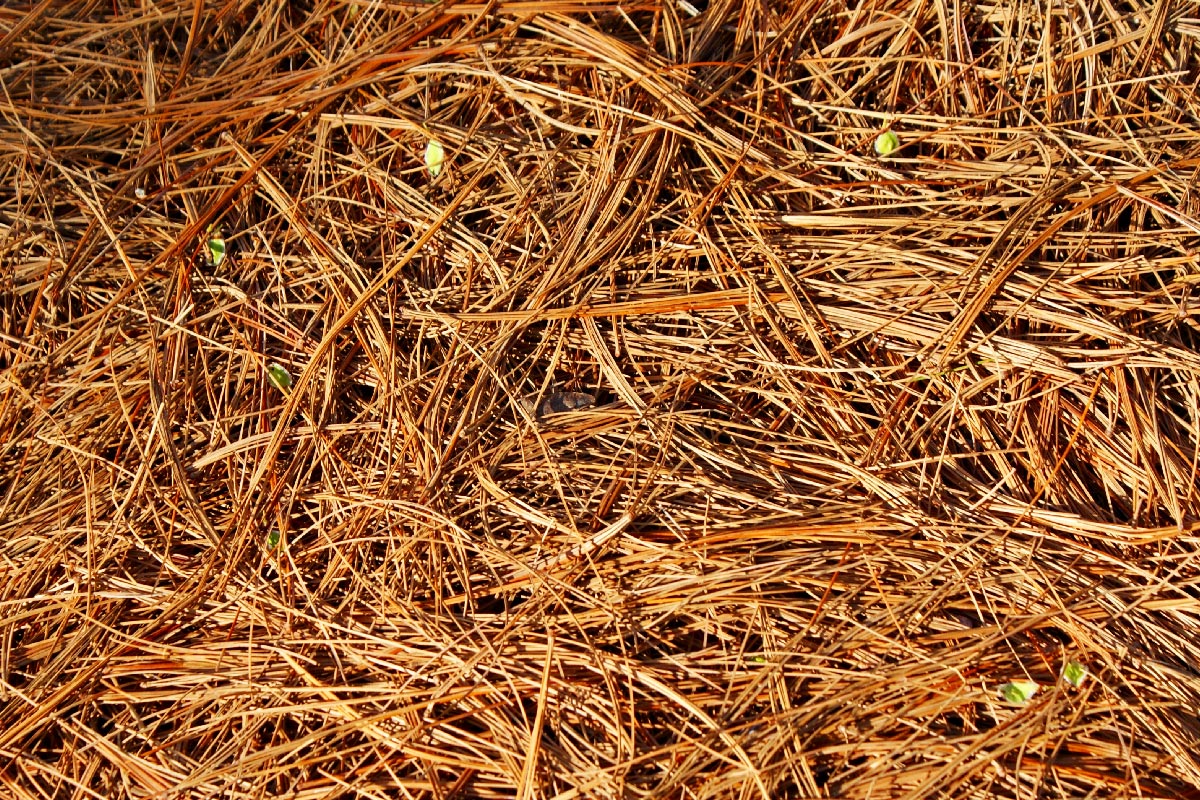
Pine straw is the term for needles that drop from pine trees. They are considered naturally occurring mulch in the ecosystem.
The interlocking of the needles has the strength to hold off stormwater, and as such, prevent soil erosion. Since they are highly acidic, it is advisable to apply pine straw around acid-loving plants.
Cocoa Hulls
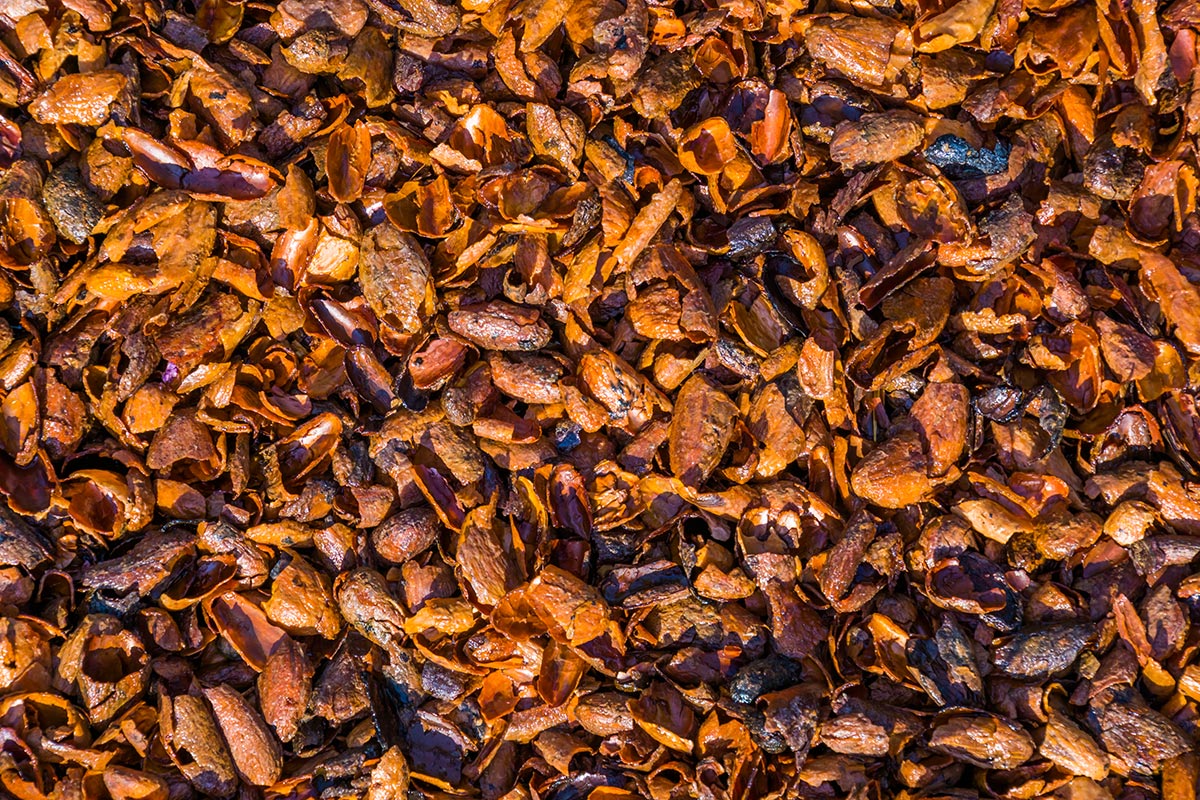
Cocoa hulls are made from cocoa shells. When the cocoa is roasted, the covering and the beans separate. By doing this process, mulch is sterilized so that the shells become weed free.
The mulch has some safety issues that deter gardeners and plant enthusiasts from using it. They are highly poisonous to dogs, cats, and other animals. However, there are still studies that disagree with this claim. Although it is largely debated, it is best to avoid using cocoa hulls if you own pets.
For some people, its strong chocolate aroma and its visual appeal make it a popular choice. They are costly and decompose easily and quickly as compared to other kinds of mulches.
In Closing
Both organic and artificial mulches have their own benefits and disadvantages. While this is true, natural mulches are still the best and safest option. We hope this article proved to be insightful.



![A man using a portable vacuum to collect dead leaves, Will A Leaf Vacuum Pick Up Mulch? [Can It Remove Leaves From Mulch?]](https://landscapingbase.com/wp-content/uploads/2022/09/Man-using-a-portable-vacuum-to-collect-dead-leaves-600x400.jpg)
